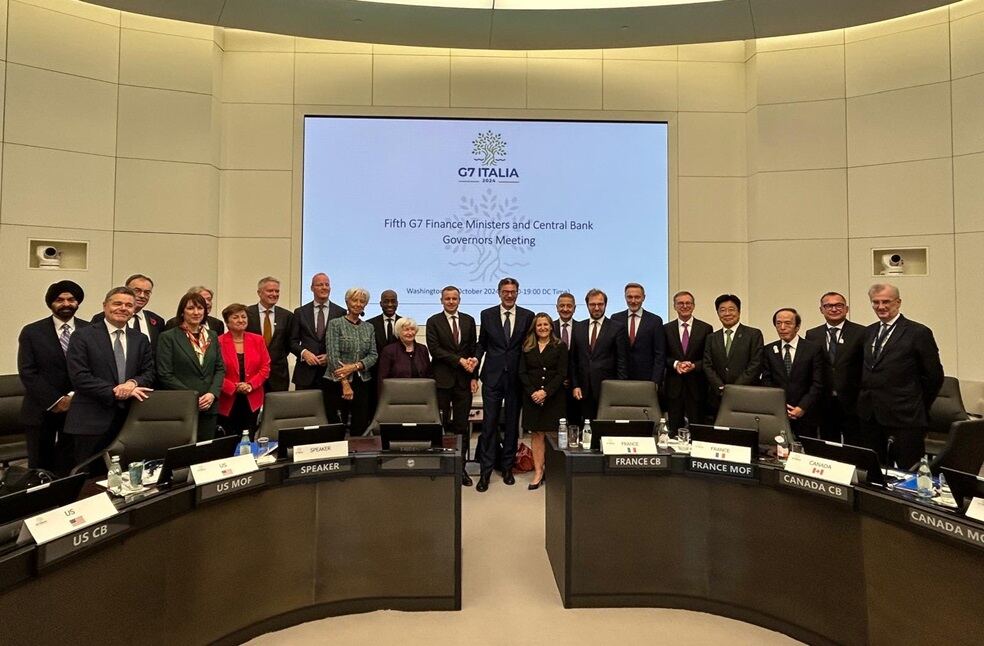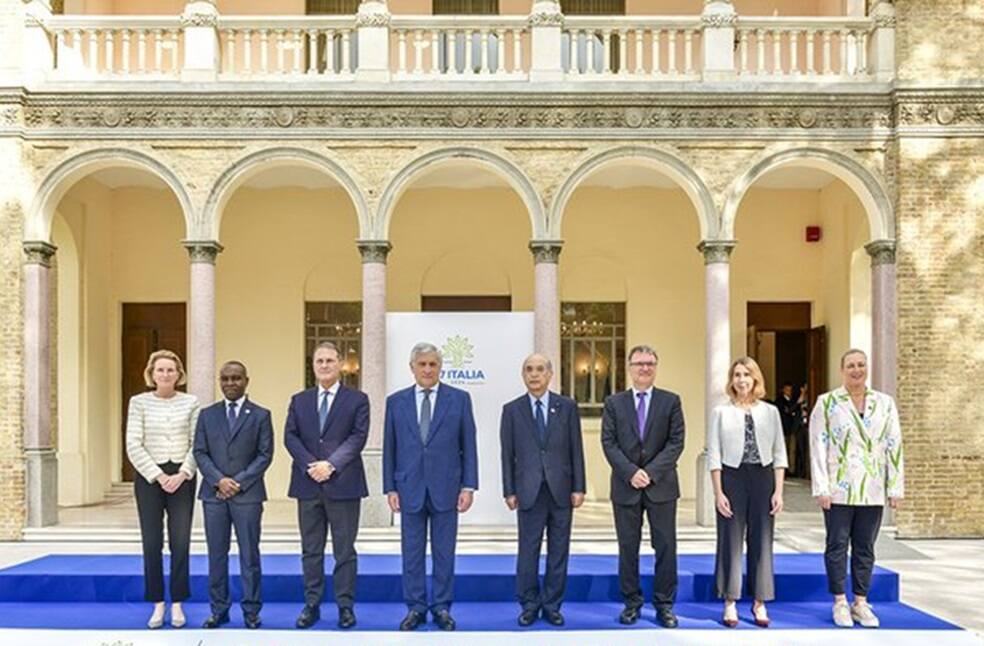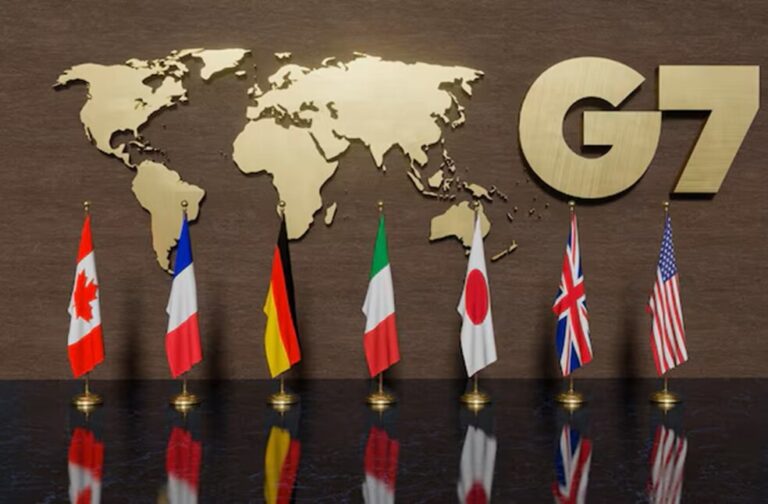Rome/Washington: Leaders of the Group of Seven (G7) wealthy democracies have reached a consensus to provide Ukraine with $50 billion in loans, funded by earnings from frozen Russian sovereign assets.
The disbursements are expected to begin as early as December, signaling continued international support for Ukraine amid the ongoing conflict with Russia.
The G7 statement, released during the International Monetary Fund (IMF) and World Bank annual meetings in Washington, emphasised that the loans would be serviced and repaid through future extraordinary revenues generated from the immobilisation of Russian assets. “Our aim is to begin disbursing the funds by the end of the year,” the statement said.
The G7 finance ministers clarified that the loans would be issued through a series of bilateral agreements. The first disbursements are set to begin on December 1, 2024, and continue until the end of 2027, with installments adjusted to meet Ukraine’s urgent financial needs.

Each loan agreement must take effect no later than June 30, 2025, allowing flexibility for member states to finalise their contributions.
The total $50 billion will be split among the G7 nations. The United States has already committed $20 billion for December, ensuring the funds are allocated before the US presidential election in November.
Republican candidate Donald Trump, who has pledged to end US involvement in the conflict, could potentially shift the policy landscape if elected. The European Union is expected to provide another $20 billion, with the remaining $10 billion coming from Canada, the United Kingdom, and Japan.
Distribution Channels
The loans will be managed through multiple channels, including:
- The EU’s Macro-Financial Assistance Loan programme
- The IMF’s Multi-Donor Administered Account for Ukraine
- A newly established Financial Intermediary Fund for Ukraine at the World Bank

Frozen Russian Assets
The financial package follows a June 2024 agreement by G7 leaders to leverage earnings from approximately €260 billion ($280.6 billion) in frozen Russian assets. Most of these reserves are held in Euroclear, a Belgian-based securities depository, making the European Union essential in facilitating the plan.
“The G7 remains steadfast in its solidarity with Ukraine, supporting its fight for freedom, recovery, and reconstruction,” the G7 leaders affirmed.



